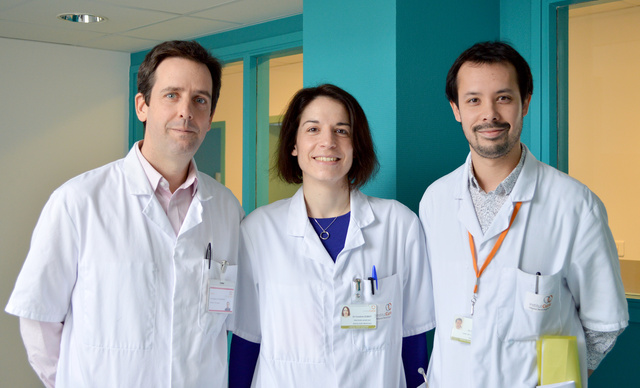Early trials
The Saint-Cloud site will focus on precision medicine. As such, it will conduct a major clinical trial, SHIVA02, and will house part of the Diagnostic and Theranostic division.

New knowledge on molecular and immunological anomalies of cancer has produced a new classification of tumors and a real paradigm shift in the therapeutic approach. Treatment no longer depends solely on the tumor location and its extension, but also, and above all, on its molecular profile.
This new aspect needs to be investigated in early clinical trials in order to provide the benefits of this fundamental advance to patients as soon as possible.
Diagnostic and Theranostic Medicine division
Precision medicine is based mainly on a molecular diagnosis of tumors to provide therapeutic choices. Institut Curie is developing a division devoted to analyzing genome anomalies in tumors and identifying predictive markers of therapies´ effectiveness.
The development of biostatistics and bioinformatics is one of the mainstays of the use of precision medicine. As the field of genetics flourishes, physicians can no longer work alone. They need to consider the results of complex molecular analyses that require collaboration between biologists, experts from the various platforms and bio-computer scientists. Furthermore, this new era in medicine is producing important data, some of which may not be usable until later. Given the need for storage and analysis inherent to precision medicine and the explosion in the quantity and complexity of data, a Data division will be created. Its mission
